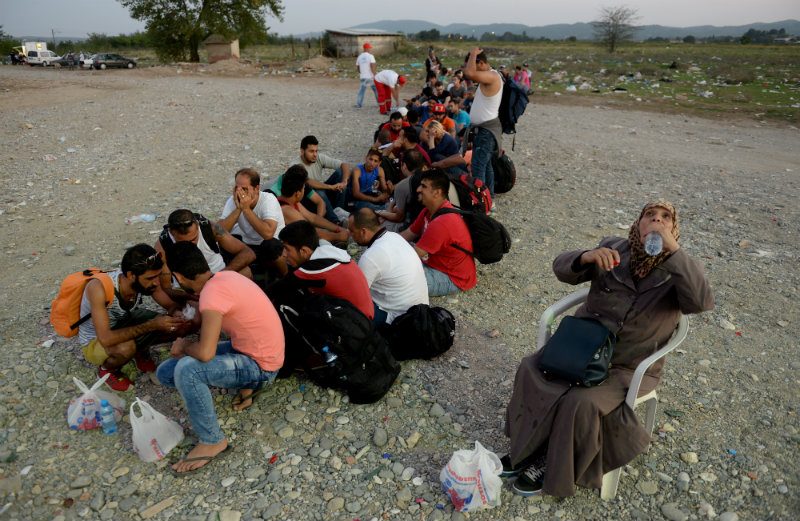SUMMARY
This is AI generated summarization, which may have errors. For context, always refer to the full article.

BEREMUND, Hungary – Croatia and Hungary have traded barbs on a national level, each pointing the finger at the other over their responses to Europe’s escalating migrant crisis. On the ground, however, it’s a different story.
Ministers from the neighbouring governments have hit out at their counterparts, Hungary has built a barbed-wire barrier along much of its border with Croatia, and Zagreb has pledged to continue redirecting migrants – most of whom have taken perilous journeys from the Middle East and Africa – towards Hungary.
But at the borders themselves, authorities on both sides appear to have cast aside the rhetoric and exhibited high levels of cooperation and coordination.
At an immigration point linking the northeastern Croatian town of Baranjsko Petrovo Selo with Beremend in Hungary on Saturday night, 11 buses transported around 600 migrants towards the frontier between the two countries.
One bus after another would stop just meters (yards) from the border, allowing passengers to disembark before progressing on foot into Hungary, where a phalanx of buses collected them and immediately departed.
The entire process took around 15 minutes per bus, according to an Agence France-Presse journalist at the scene.
“I have been travelling for 20 days,” said Aras, a native of Iraq’s vast desert province of Anbar, now largely under the control of the Islamic State jihadist group, which has seized a swathe of territory in Iraq and neighbouring Syria.
“It’s horrible. I am so tired.”
The 21-year-old, his face thin and covered in stubble, continued: “All the members of my family were killed – my sister, my mother, my father, all of them.
“I am the only survivor. I just want to live my life. That’s all.”
‘Our destination, Germany’
Soon after, another bus came to a stop. The doors opened, and a pile of baggage spilled out onto the road.
Ammar, a young man with an athletic build who was wearing a white shirt with plaid shorts, jumped off.
“I am here with five members of my family, but our whole group is made up of 15 people, all Syrians,” the Damascene law student said. “We met on board an inflatable boat between Turkey and Greece.”
“We are on our way to our destination, Germany, any city there.”
The scenes of cooperation between Croatian and Hungarian authorities at the border were a marked contrast to the heated exchanges between the two sides in public.
Hungary hastily completed a 41-kilometer (25-mile) barbed-wire barrier along its border with Croatia, with the remaining 330 kilometres of the two countries’ frontier running roughly along the Drava river, which is difficult to cross.
Hungary’s foreign minister has also accused Croatia of pushing migrants to break the law by “illegally” breaching Hungarian borders, and Budapest has dismissed Zagreb’s claim of a bilateral deal on the issue, describing them as “lies”.
Croatia, meanwhile, has said it will nevertheless continue to redirect migrants to the Hungarian border, insisting it will “not become the refugee center of Europe”.
While waiting to enter Hungary at the Baranjsko Petrovo Selo-Beremend crossing, one young Syrian said: “We were a bit depressed when we learned Hungary had closed its borders.
“But right now,” he said, “we are happy.” – Calin Neacsu, Agence France-Presse/Rappler.com
Add a comment
How does this make you feel?
There are no comments yet. Add your comment to start the conversation.